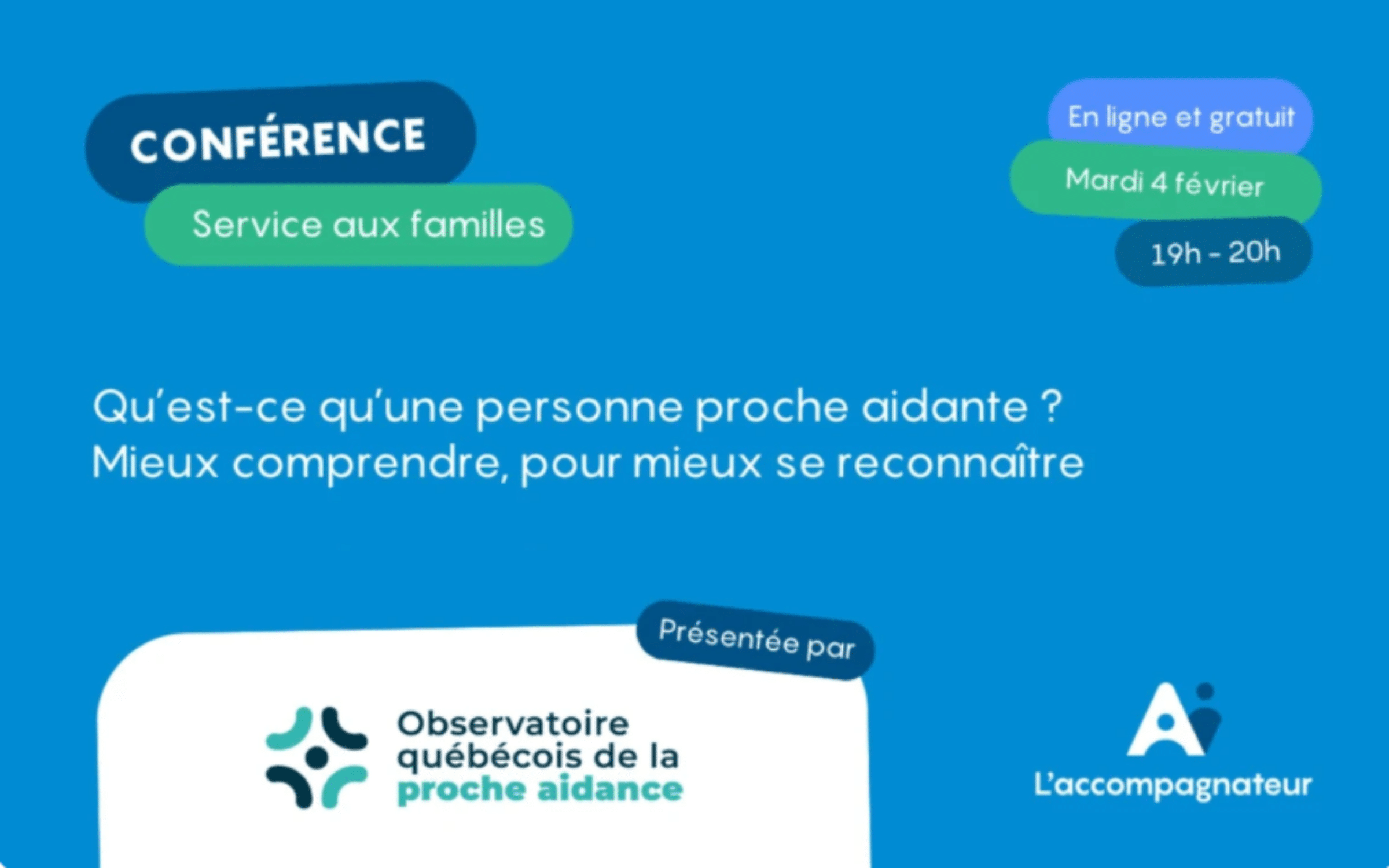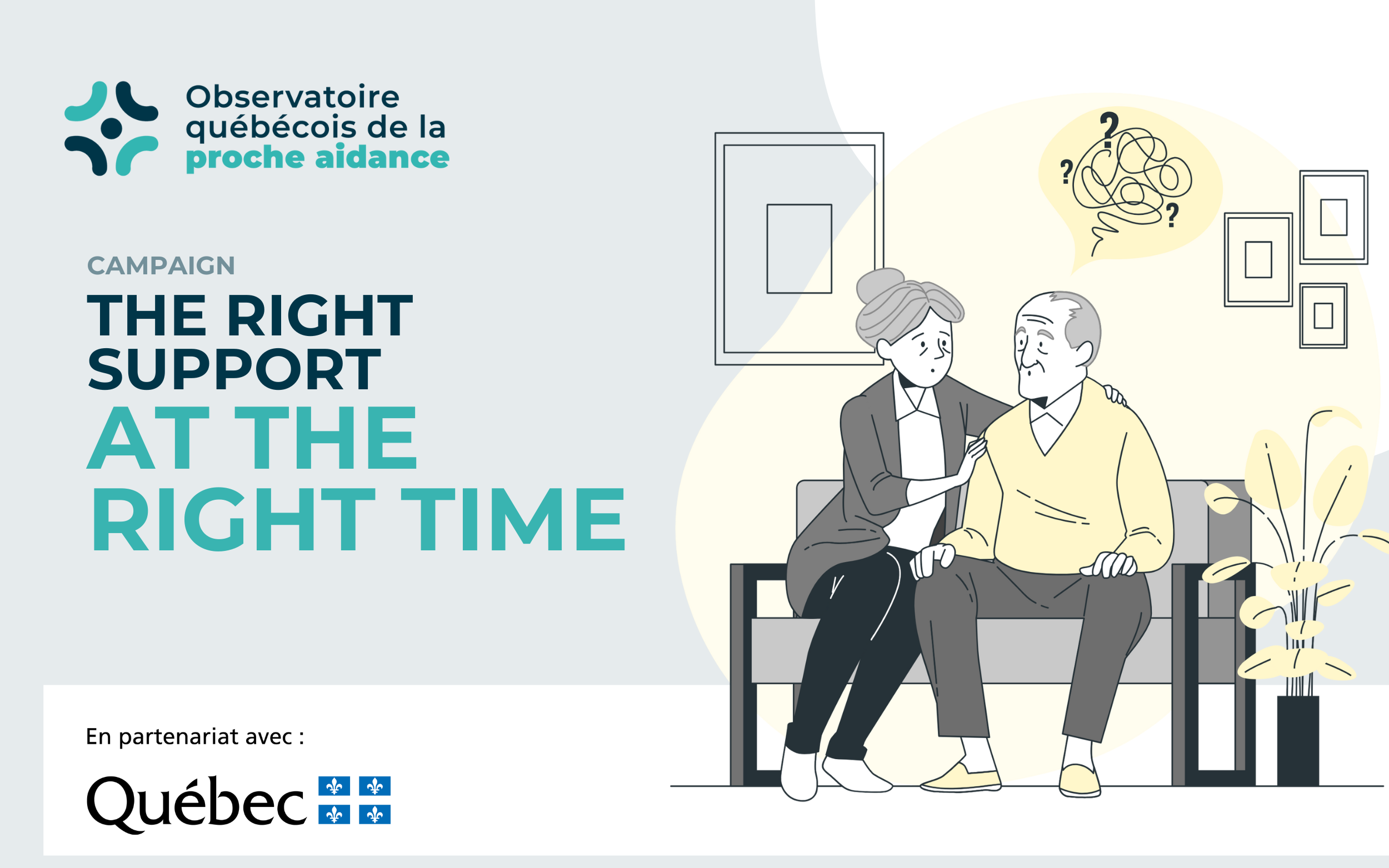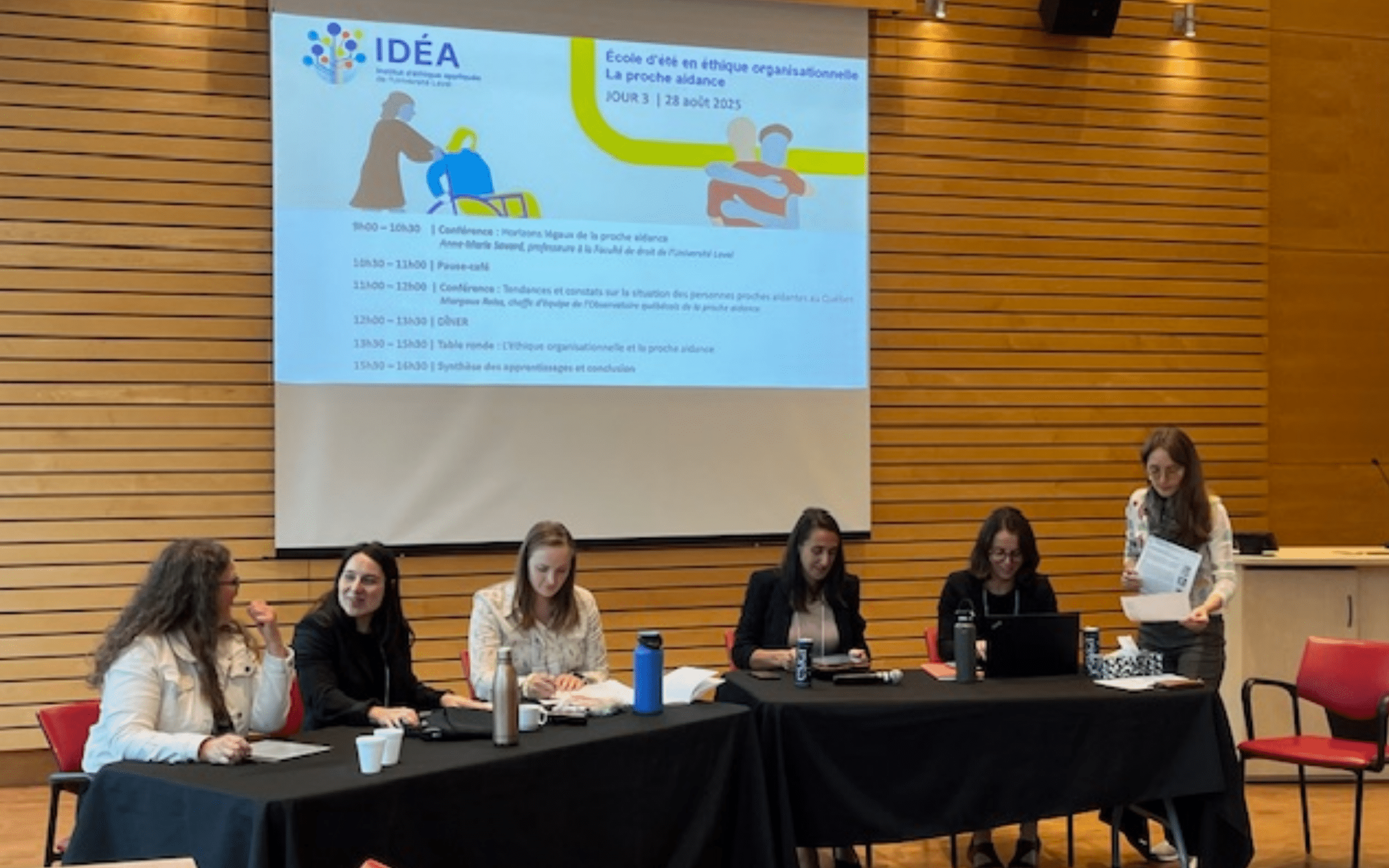On February 4, from 7 to 8 p.m, we will present the webinar (in French) “Qu’est-ce qu’une personne proche aidante ? Mieux comprendre, pour mieux se reconnaître” organized in collaboration with L’accompagnateur.
During this webinar, we will explore the definition of “caregiver” as outlined in the Act to Recognize and Support Caregivers. Specifically, we will explain the different aspects of this definition using our infographic “What is a caregiver? Would you know one to see one?” and examples shared by caregivers. We will also discuss the various support options available.
This webinar aims to promote the recognition and self-recognition of parents caregivers, raise awareness among participants about what a caregiver is, and facilitate access to support.




